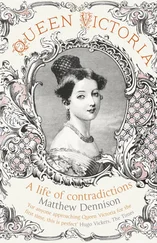Of these two impulses, ‘detachment’ was the one that touched Walter most strongly. It became his mark as both a person and a painter. And though essentially an innate trait of his character, the tensions of his London childhood sharpened it and gave it direction. Walter did not retreat into his own world. From the start he engaged enthusiastically with English life and English ways. ‘Nobody,’ it was later said of him, ‘ was more English.’ But his understanding of Englishness was gained from the outside. It was – as one English friend noted – ‘his northern foreign blood’ that ‘afforded him just the requisite impetus to understand especially well this country and its ways’. 41
The upheaval of the Franco-Prussian War encouraged the Sickerts to spend their holidays in England. In the summer of 1870, Mr Sickert took Walter and the other children to the seaside at Lowestoft. While he sketched and painted, the boys flew kites and built sandcastles. Walter was much impressed too by the sight of a drowned man, and much excited by the sight of the lovely Mrs Swears, the beauty of the season, who would drive up and down the front in her carriage, her long hair streaming in the wind. 42 In the following years they visited Ilfracombe and Harwich. 43
Mrs Sickert did not accompany the family to Lowestoft, perhaps because she was pregnant. At the beginning of 1871, Walter got a new brother. Born on 14 February, he was duly christened Oswald Valentine. To simplify the logistics of family life, Walter was taken out of UCS and sent, along with Robert and Bernhard, to a new school close to Hanover Terrace. The Bayswater Collegiate School was situated at ‘Chepstow Lodge’, 1 Pembridge Villas, on the corner with Chepstow Place, four doors down (as Sickert liked to point out) from the celebrated Victorian genre painter, W. P. Frith. It was run by William T. Hunt, a young man in his early thirties with progressive ideas. 44
Helena’s chief recollection of her brothers’ schooling was of them being chivvied off by their mother in the morning and then coming home in the afternoon without the books necessary for their prep. In the case of Robert and Bernhard such oversights tended to be the result of inattention; both brothers were what was called ‘dreamy’. If Walter forgot his books, however, it was probably because he was thinking of so many other things. Although he hated organized games, he was always ‘prodigiously energetic’, busy with something outside the school curriculum – acting, drawing, even learning Japanese. There were five Japanese boys at the school, sent to England by their feudal clan – Hachizuka – to study English. (All subsequently rose to positions of prominence in Japan.) Walter adopted them, and brought them back to Hanover Terrace. ‘We liked them better than the English boys,’ Helena recalled. She was particularly fond of Hamaguchi Shintaro – ‘a delightful little fellow’ with ‘exquisite manners’ who could play six games of chess at once. 45 But it is uncertain how long the close connection lasted. Walter’s enthusiasms for people were not always sustained. Though ‘very sociable and charming’, he had – as his sister put it – ‘a way of shedding acquaintances and even friends’. Sometimes an actual quarrel precipitated the break, but more often there was merely a removal of favour, as his interest shifted on to somebody – or something – new. To the rejected, this exclusion from the charmed radiance of Walter’s friendship tended to come as a horrid and unexpected blow, and it was often left to Mrs Sickert to ‘comfort’ the unfortunates and excuse her son’s fickleness. 46
Many years later, the novelist Hugh Walpole, describing Sickert’s character, remarked, ‘[he] isolates himself utterly from everybody’. It was not that he was ‘hermit like or scornful of life’. Far from it: he was ‘eager to hear anything about life at all … but his personality is so entirely of its own and so distinctive that he makes a world of his own’. And it is clear that even in childhood these traits were evident. While a person stood in some relation to Sickert’s current interest they enjoyed the favour of access to his world. But his interests changed often. As Walpole noted, there was no limit to them: ‘morals, families, personal habits, colours, games’. 47 In 1904 Sickert explained to a female friend that he found absolutely everything ‘absorbingly interesting’, that there was ‘no end to the wonderful delights of life’. She felt that he was telling the truth, but considered that ‘such delightful fluency and ease [could] only come either from a dead heart or from a love, like God’s, that had done with personality and material things’. 48
Walter, as a young child, did give some hints of a capacity for universal love. His mother reported that, while at Munich, he had asked her one night, before saying his prayers, ‘Mama, may I say God Bless all the world? I should like to say it because it would be kind.’ 49 But it seems more probable that his extraordinary relish for the incidents of life was another aspect of his detachment. A ‘dead heart’ is perhaps an unduly pejorative phrase. Although Sickert’s behaviour and his pronouncements, as both a child and a man, could sometimes seem unfeeling, even callous in their unflinching objectivity, there was something grand and invigorating about his enthusiasms, his openness to all sides of life, his refusal to accept hierarchies or to make judgements. He infected others, too, with verve. And though he might abandon his friends, many of them remained loyal to him and his memory even after he had moved on.
Walter’s schoolboy pursuits were legion. Inspired by the Prussians’ defeat of the Emperor Napoleon III, he created a variant of chess, called Sedan, in which the king could be taken. 50 He also conceived a fascinated interest in the case of the Tichborne Claimant and followed its long unwinding closely. Roger Charles Doughty Tichborne, the heir presumptive to the Tichborne Estates at Alresford, Hampshire, had sailed from Rio de Janeiro in 1854 at the age of twenty-five, in a ship that was lost at sea. No survivors were ever found. After the death of his father, Sir James, his younger brother, Alfred, assumed the title and estates, but died in 1866, leaving only an infant son. The old dowager Lady Tichborne, however, had never reconciled herself to the loss of her eldest son, and began to advertise abroad for news of his fate, hopeful that he had perhaps escaped the wreck. She was thrilled to receive word from a man in Australia who claimed to be her longlost boy. The man set sail for England at the end of 1866 and asserted his claim to be the Tichborne heir. In 1867 he was received by Lady Tichborne, who was living in Paris, and was apparently recognized by her as her son, even though there was no obvious physical resemblance, the claimant being a very stout man weighing some twenty stone and Roger Tichborne always having been conspicuously thin. His claim, unsurprisingly, was disputed by other members of the Tichborne family, and the matter went to court.
The trial was long-drawn-out and sensational, with its cast of minor aristocrats, duplicitous servants, old sea dogs, and colonial adventurers. The fat, bewhiskered, rather dignified claimant was the star of the show. Minutely cross-examined about the facts of his supposed early life by a defence intent on proving that he was not Roger Tichborne at all, but Arthur Orton, the opportunistic emigrant son of a Wapping butcher who, anxious to escape from his debts in Wagga Wagga, had embarked upon a career of profitable deception, he remained unperturbed and unperturbable. Public opinion was sharply divided on the question of his bona fides, and remained divided throughout the trial. As Sickert later wrote: ‘We are born believers in or doubters of Sir Roger Charles Doughty Tichborne’s identity.’ He was a born believer. 51
Читать дальше












